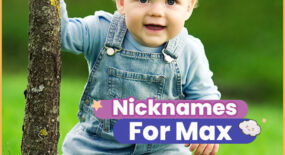Just like in adults, yawning in babies is one of the signs of sleepiness and generally occurs just before the onset of sleep. Babies begin to yawn right from within the mother’s womb when they are young fetuses of 12-14 weeks gestational age (1). Yawning is defined as an involuntary wide opening of the mouth accompanied by a long and deep inhalation through the mouth and nose. It is followed by a slow exhalation and is associated with a feeling of relaxation and comfort.
If your baby seems to yawn excessively even after a good night’s sleep, you must inform your child’s pediatrician about it. The doctor may investigate it to rule out any other underlying conditions. Read on to know about the causes and management of excessive yawning in babies.
Causes Of Excessive Yawning In Babies
Excessive yawning in babies can be due to any of the following reasons. However, it is best to look out for other signs, too, before determining the problem (2).
1. Lethargy
Excessive yawning can be a sign of drowsiness or lethargy in your baby. If they seem drowsy or lethargic even after having a good night’s sleep, it is best to consult your pediatrician.
2. Fatigue
Your baby might be yawning throughout the day due to tiredness and fatigue. The fatigue could be due to a lack of nutrients. Make sure your baby is well-fed and gets all the nutrients needed for their growth.
3. Underlying medical issues
In rare cases, yawning in babies could be a sign of an underlying medical condition, such as multiple sclerosis, epilepsy, migraine, stress, anxiety, or stroke. This could increase the core body temperature, and yawning could be a mechanism to correct it.
Is Yawning Contagious In Babies?
You might have often noticed that we yawn involuntarily upon seeing someone yawn, but this may not be the case with babies. A study has found that contagious yawning can be induced in children after four to five years of age, and that babies below this age have immature neural mechanisms to understand the mental state of others and imitate yawning (2)
When Is Yawning Normal In Babies?
If your baby yawns once or twice per hour when they are sleepy, tired, or going through a growth spurt, you need not worry about it, as this is the normal rate of yawning in babies.
When Should You Be Worried?
Yawning is a normal reflex in babies when they are tired or sleepy. But, if you notice an increase in the frequency of yawning or if your baby shows other signs of disturbances, it is best to consult your pediatrician as excessive yawning could be a sign of an underlying medical condition. Excess yawning could be controlled when the underlying medical reason is addressed.
Ways To Manage Excess Yawning In Babies
If your pediatrician rules out any underlying medical causes, follow these steps to manage excessive yawning in your baby.
- Make sure your baby takes enough naps to get adequate sleep.
- Breastfeed them exclusively for the first six months and include nutritious foods in their diet once they start on solids.
- Take care not to overstimulate them before their bedtime.
- Establish and follow a bedtime routine.
Yawning in babies is a normal reflex that isn’t usually a cause for concern. Generally, babies yawn due to lethargy, sleepiness, or even underlying medical issues. A baby yawning once or twice every hour is quite normal. You can manage excess yawning in your baby by taking measures such as maintaining a bedtime routine, ensuring your baby sleeps sufficiently, including nutrients in their diet, and avoiding overstimulating the baby. However, consult a doctor if you suspect any underlying health concerns for your baby yawning excessively.
Key Pointers
- Lethargy, fatigue, or an underlying health issue may cause excessive yawning in babies.
- Make sure your baby gets adequate sleep and is exclusively breastfed till six months of age.
- Consult a pediatrician if your baby yawns a lot despite following a good bedtime routine.












